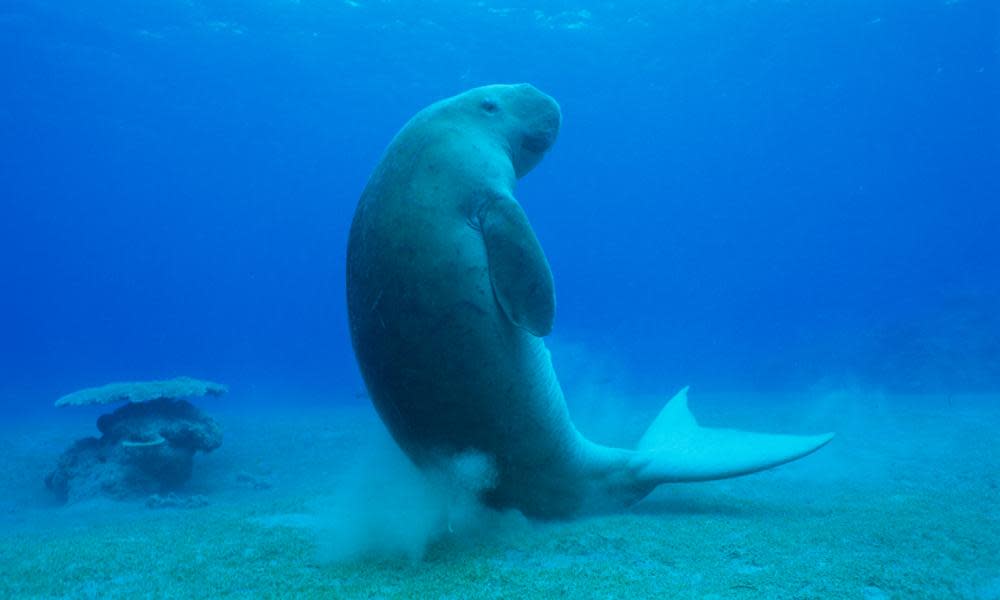Conservationists welcome gillnet fishing ban in Great Barrier Reef world heritage area

The federal and Queensland governments will phase out commercial gillnet fishing in the Great Barrier Reef world heritage area by mid-2027 and create new net-free zones to better protect endangered marine species.
The environment minister, Tanya Plibersek, announced the $160m plan Monday afternoon and said it would significantly reduce net fishing and high-risk fishing on the reef that injure and kill threatened dugongs, turtles, dolphins and protected shark species.
Plibersek will also ask the Queensland government to declare the hammerhead shark a “no-take” species for commercial fishers in Queensland waters, something long called for by oceans campaigners.
Related: Queensland urged to end its ‘failing’ shark nets and drum lines program
Part of the funding will be used to buy out gillnet licences, with the majority of gillnets to be removed by the end of this year and a total ban by mid-2027.
“We know one of the most immediate threats to health of reef is unsustainable fishing practices. It causes damage throughout the reef, as threatened marine life like dugongs, turtles and dolphins are caught in nets and drown,” Plibersek said.
“The removal of gillnets in net-free zones on the reef has already helped boost local fish populations. We want to see this happen right across the reef.”
Sign up for Guardian Australia’s free morning and afternoon email newsletters for your daily news roundup
The money will also fund the creation of new net-free zones in the northern third of the Great Barrier Reef and parts of the Gulf of Carpentaria, accelerate the implementation of a sustainable fisheries strategy and mandate the use of independent data validation on commercial fishing vessels.
A phase-out of gillnets and an accelerated rollout of a sustainable fisheries strategy were among recommendations of a report from a UN-backed mission to the reef that concluded the world’s biggest coral reef system should be placed on a list of world heritage sites in danger.
The announcement comes after a long campaign by conservation groups for an end to gillnet fishing on the reef. The nets, which can measure more than a kilometre in length, are used to catch fish such as barramundi and mackerel but can also entangle, injure and kill other, endangered species.
Related: Unlike past campaigns, today’s concern for the Great Barrier Reef is stuck in neutral | Rohan Lloyd
WWF-Australia, which campaigned for seven years for an end to commercial gillnet fishing, said it was a “globally significant moment for ocean conservation, fisheries management and the Great Barrier Reef”.
“If all goes to plan, by June 2027 we’ll have a net-free reef where dugongs, turtles, dolphins and other threatened species can swim without the threat of becoming entangled and drowning in a gill net, and that’s a cause for global celebration,” the chief executive, Dermot O’Gorman, said.
The Australian Marine Conservation Society said “permanently removing these devastating nets will help populations of threatened species to recover”.
The AMCS has for years called for better protection for threatened hammerhead sharks, including the endangered scalloped hammerhead shark, and welcomed the decision to have hammerheads declared a no-take species.
“The ongoing capture of endangered hammerheads for meat and fins has long been out of step with protecting and recovering threatened species in the reef,” the chief executive, Darren Kindleysides said.

 Yahoo News
Yahoo News 
